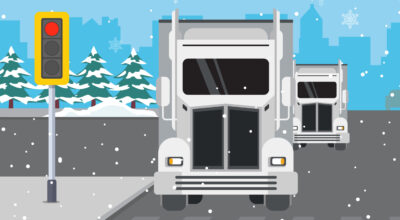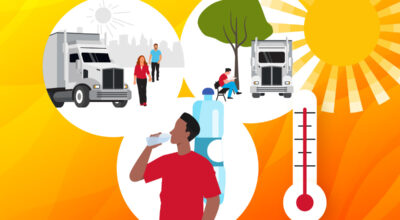CSA point values: What do drivers and employers need to know?

Compliance, Safety and Accountability Points (CSA Points) were created to ensure that drivers and their employers comply with safety standards set by the Federal Motor Carrier Safety Administration (FMCSA).
Anytime a violation occurs, points are assessed and added to a fleets’ overall score. Points range from 1 to 10 with 1 being the lowest.
Why you should care
CSA points remain on a drivers’ individual record for up to 36 months. While it is unlikely the FMSCA will take action against a driver, a high score could impact your job search.
Driver points are added to a fleets’ overall CSA score—fleets strive to have the lowest CSA score to ensure they receive a high ranking from the FMCSA. Fleets will be unlikely to hire a driver who they deem a safety risk.
How do you earn points?
Because CSA Points could impact a driver’s job search, it is important that drivers understand CSA violations and the points associated with them.
There are 5 major categories of CSA Point violations that truck drivers need to be aware of:
- Driving Violations: Everything from speeding to failing to meet physical qualifications are covered in this category.
- E-Log and/or EOBR Violations: Failure to submit electronic on-board computer information can affect your CSA score in this category.
- Hours of Service Violations: Operating a vehicle fatigued or failing to comply with HOS rules will earn you serious violations.
- Mobile Device Violations: Using a mobile phone, whether speaking or texting, could cost you 10 points.
- Paperwork Violations: Failure to ensure your license or logs are up-to-date and correct could cost you anywhere from 1 to 8 points.
There are also points categories of vehicle maintenance, drug/alcohol and hazardous materials violations .
For a more detailed outline of the violations can be found online. Review this outline, and never hesitate to reach out to Centerline for help understanding these violations.


